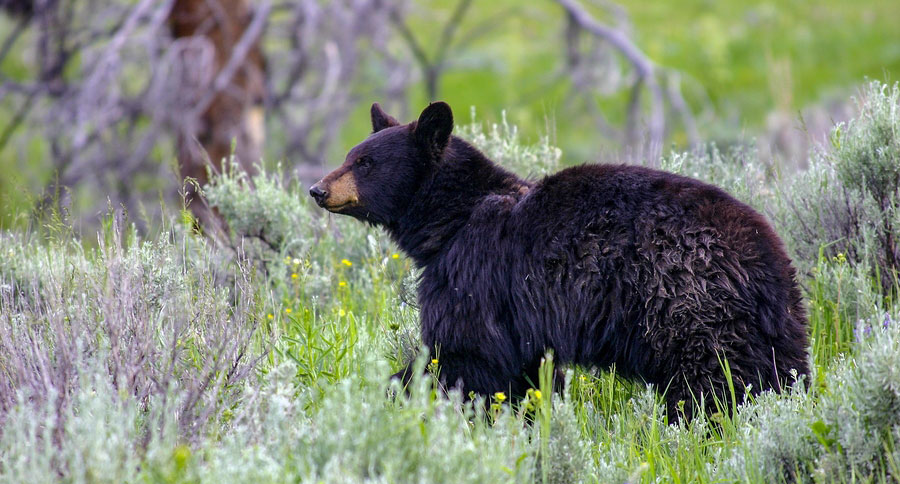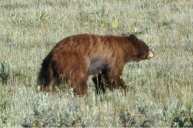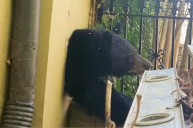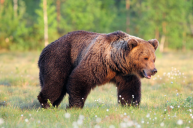We have a serious flaw in wildlife management that we need to address.
On Sept. 7, 2018, a Tennessee man and his friend made their way into the Great Smoky Mountains National Park in search of ginseng, a high-dollar root often used as a home medicine, but they became separated.
Two days later, searchers found the body of William Lee Hill Jr., 30, off Rich Mountain Road, just 2 miles north of Cades Cove. A black bear was scavenging his body and was still nearby, so they assumed it was responsible for Hill's death.
The National Parks Service said park rangers also found syringes and drug paraphernalia near the body, according to WBIR.
Following a series of discussions with Superintendent Cassius Cash, the park staff decided to euthanize the bear a few days later, which required five shots over three days.
"The biologists spent several days tracking the bear and were consistently challenged by weather, terrain, thick vegetation and the elusive behavior of the bear," park spokeswoman Dana Soehn told the National Parks Traveler in October. "The bear was located on the second day of tracking in a thick stand of rhododendron, and a biologist did attempt to shoot it, but the shot was not lethal. Three days later, park staff successfully located and euthanized the bear via gunshot (four shots)."
Earlier this month, however, an autopsy report from the Knox County Regional Forensic Center revealed Hill actually died of an "accidental methamphetamine intoxication" before the bear ever touched him.
"An autopsy revealed extensive postmortem animal predation, but no findings of antemortem/perimortem trauma (i.e. Mr. Hill was not attacked by the bear)," the report stated.
The autopsy also revealed Hill had a history of drug abuse, which included methamphetamine and other intravenous substances.
"This is always one of the hardest decisions a wildlife manager has to make, and is one that we did not take lightly," Cash said in a news release in September. "Over 2 million visitors come to the Cades Cove area annually and there are several residential ares very close to where we found Mr. Hill's body. We could not take the risk of allowing this bear to approach or show aggression towards other people."
There are approximately 1,500 bears in the Great Smoky Mountains National Park, which lies along the Tennessee-North Carolina border.
Park officials say that while very few are aggressive, euthanizing bears is a sometimes an unfortunate necessity to keep its 11 million visitors safe.
We have a problem
We have a serious problem that we need to address, and it definitely isn't "aggressive black bears." They're bears, people.
It's becoming more and more common to hear about some mountain lion or bear facing fatal consequences after attacking someone out in the wild. Perhaps you've heard one of the many stories that starts with someone trying to feed a wild animal and ends with the animal facing euthanasia.
Not every euthanized animal comes by the fault of a human, but far, far too many do.
We can go ahead and disregard the fact park officials got this particular case wrong altogether, because even if they would've been right, what justifies euthanizing the bear?
Our wildlife is continuing to pay the price for our shortsightedness and knee-jerk assessments of how to manage tragic situations.
A black bear isn't a rabid dog in a dog park. It's a bear in its own domain. Bears exhibit aggressive behavior at times.
As visitors to any national park, we're just that: visitors. If a bear attacks your dog in your backyard, sure, do you what you have to do. But if you're going out alone into bear country, don't ignorantly assume bears "shouldn't" be aggressive.
When predators attack people, they aren't acting out, they're simply surviving. If you're on their turf, it's your duty to know how to protect yourself, not the predator's duty to keep a safe distance.
NEXT: 'THE BOBWHITE' FILM BRINGS HOPE FOR FUTURE OF QUAIL HUNTING
WATCH
https://rumble.com/embed/u7gve.v3tp7h/




